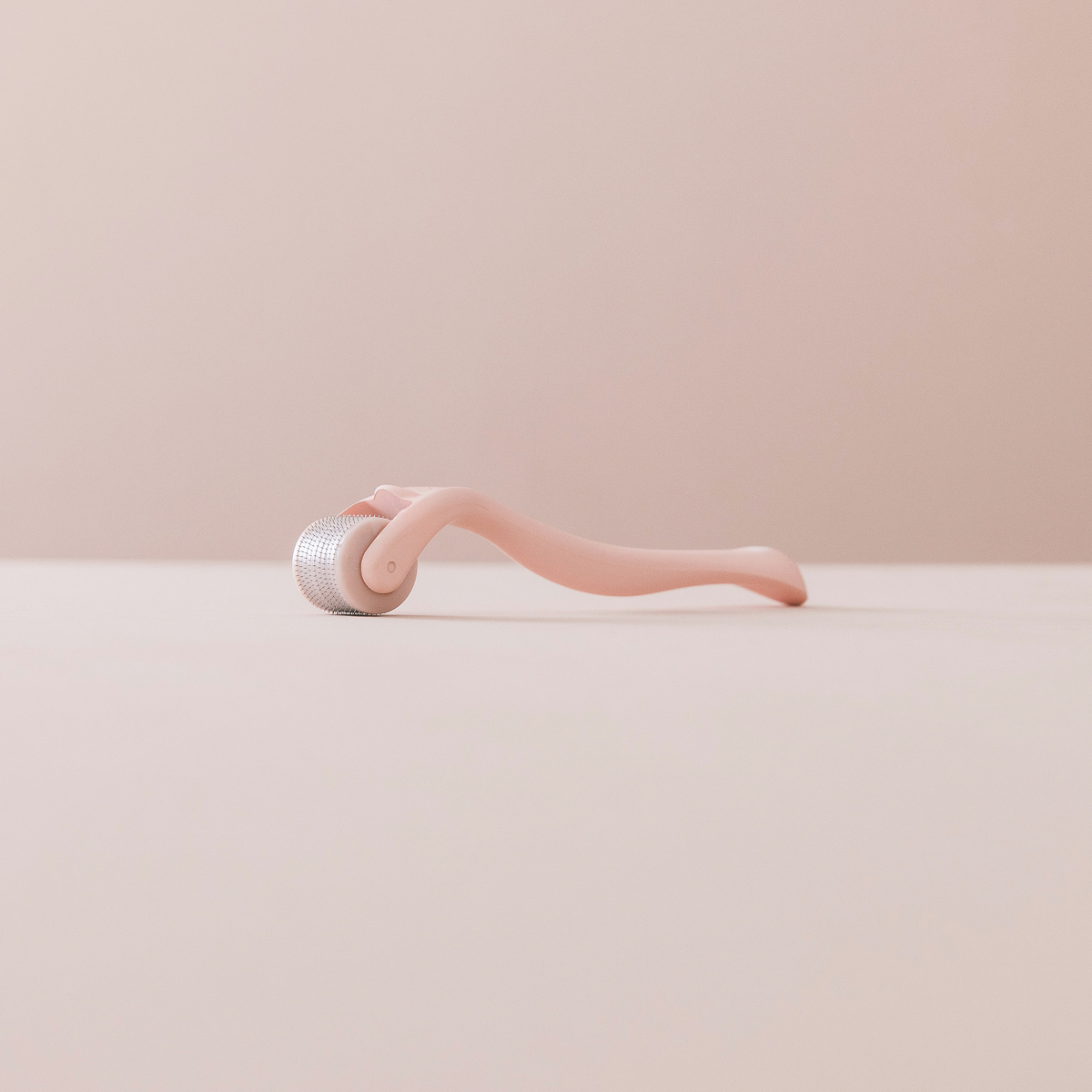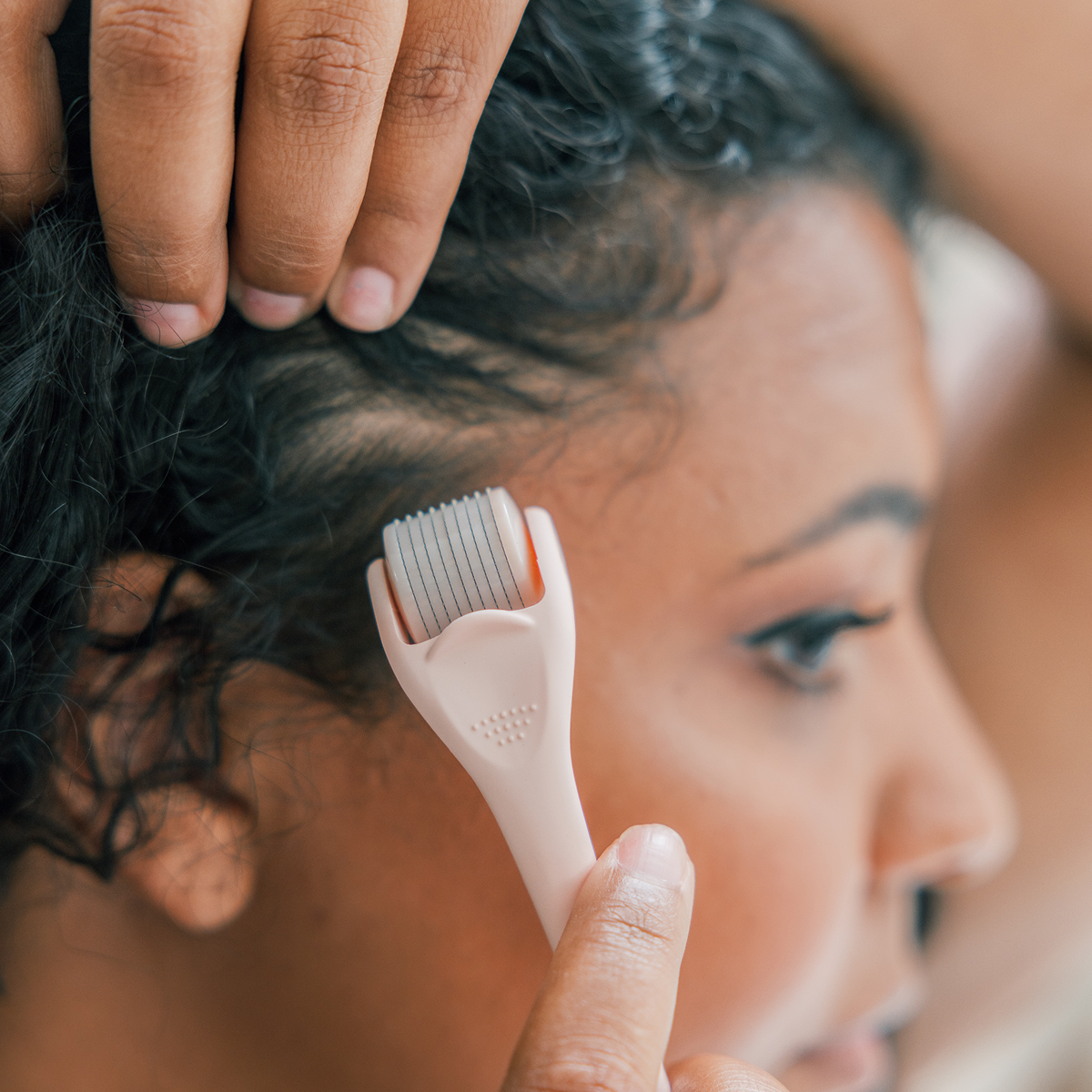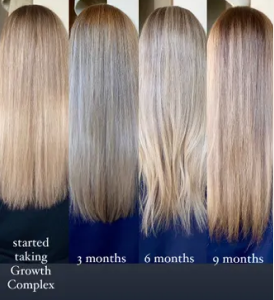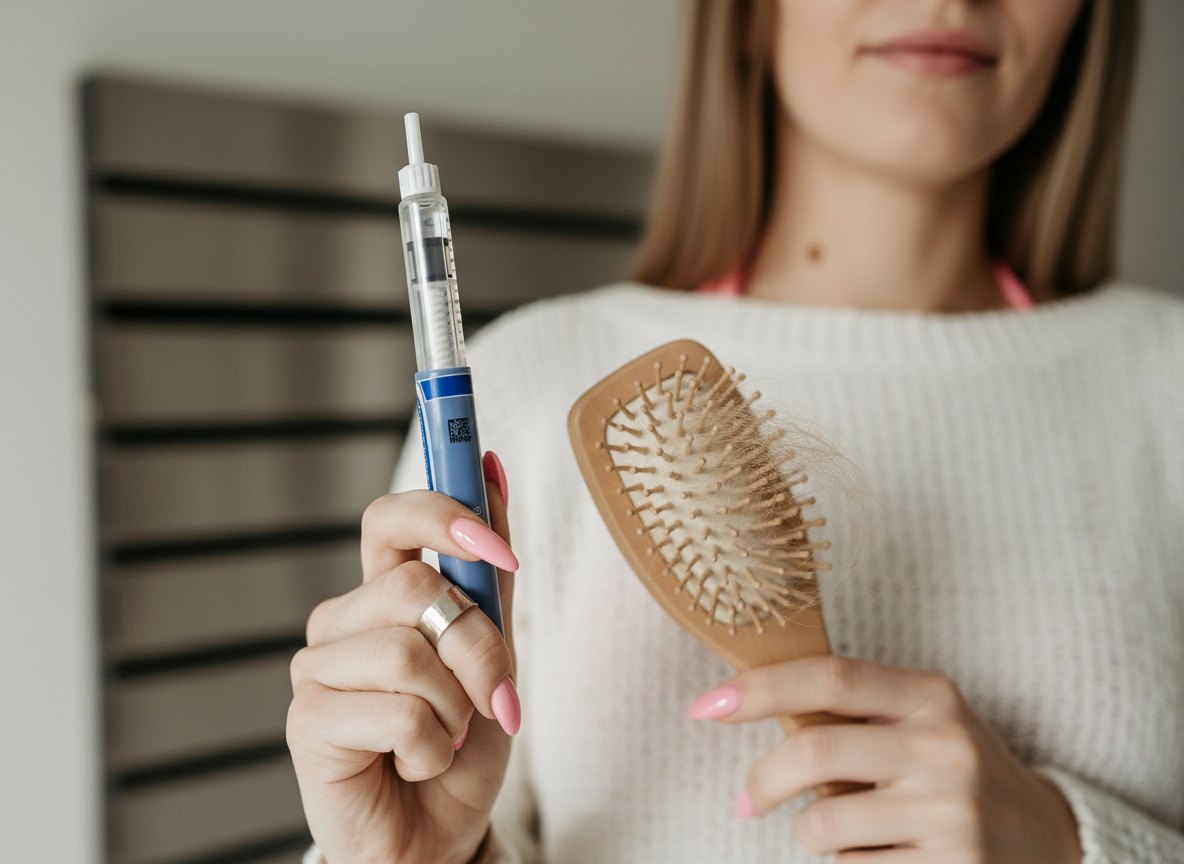Biotin—also known as vitamin B7—has long been marketed as the go-to supplement for longer, stronger hair. It’s found in everything from gummies to shampoos and often touted as the key to luscious locks. But is it really the magic bullet for hair growth?
Let’s break it down: Biotin does play a role in hair health, but taking high doses of it without other complementary nutrients may not only be ineffective—it could even contribute to unexpected issues like breakouts and imbalances. If you’ve been relying solely on biotin to revive your hair, it might be time to look at the bigger picture.
The Role of Biotin in Hair Health
Biotin helps convert nutrients into energy and supports keratin production, which is the protein your hair is made of. A deficiency in biotin can lead to hair thinning and breakage—but true biotin deficiencies are rare in people who eat a balanced diet.
What many don’t realize is that while a small amount of biotin is beneficial, mega-doses of 5,000–10,000 mcg found in some supplements may offer diminishing returns—or worse, negative side effects.
The Risks of Too Much Biotin
Too much biotin can actually create a cascade of issues in the body, particularly when it's not balanced with other key vitamins. Common side effects of excessive biotin intake include:
- Acne and skin congestion: High doses may reduce vitamin B5 (pantothenic acid) absorption, a nutrient critical for clear skin.
- Disrupted lab results: Biotin can interfere with thyroid, hormone, and cardiac test results—making diagnosis and treatment difficult.
- Poor nutrient absorption: Large amounts can interfere with how your body uses other B vitamins crucial for hair and skin health.
Why a Full-Spectrum Approach Is Better
Hair health is multifaceted. It’s impacted by nutrition, hormones, stress, inflammation, and circulation. That’s why single-ingredient fixes rarely deliver the kind of transformation you're hoping for.
Instead of leaning on one trendy vitamin, your routine should support:
- Scalp circulation: Vital for delivering nutrients to the hair follicle.
- Hormone balance: Especially important for women in different life stages like postpartum, perimenopause, or menopause.
- Cell regeneration: Encouraged by nutrients like zinc, vitamin C, and antioxidants.
- Keratin structure support: Provided by ingredients like Cynatine® HNS—a bioavailable keratin shown to improve hair strength and luster.
Signs Your Hair Supplement May Be Falling Short
If you’ve been using a biotin-only supplement and noticing these signs, it may be time to switch:
- Minimal change in shedding or breakage
- Persistent acne or skin irritation
- Plateaued progress after a few months
So, What Should You Look for Instead?
A truly effective hair supplement should combine multiple clinically studied ingredients in the right forms and doses. For example:
- Biotin (but in moderate doses)
- Cynatine® HNS for direct keratin support
- Vitamin C for collagen synthesis
- Zinc for scalp repair and immunity
- Vitamin B5 & B6 to support overall hair and skin health
The Bottom Line
Biotin isn’t bad—it’s just not the whole solution. Your hair needs a broader spectrum of support to grow stronger, shinier, and fuller. Think of biotin as one tool in a full toolbox, not the end-all-be-all.
And if you’re not seeing the results you want—or you're breaking out despite consistent use—it may be time to look at the label and upgrade your routine.
Because when it comes to your hair journey, you deserve more than a trend. You deserve a real solution that works from the inside out.



























